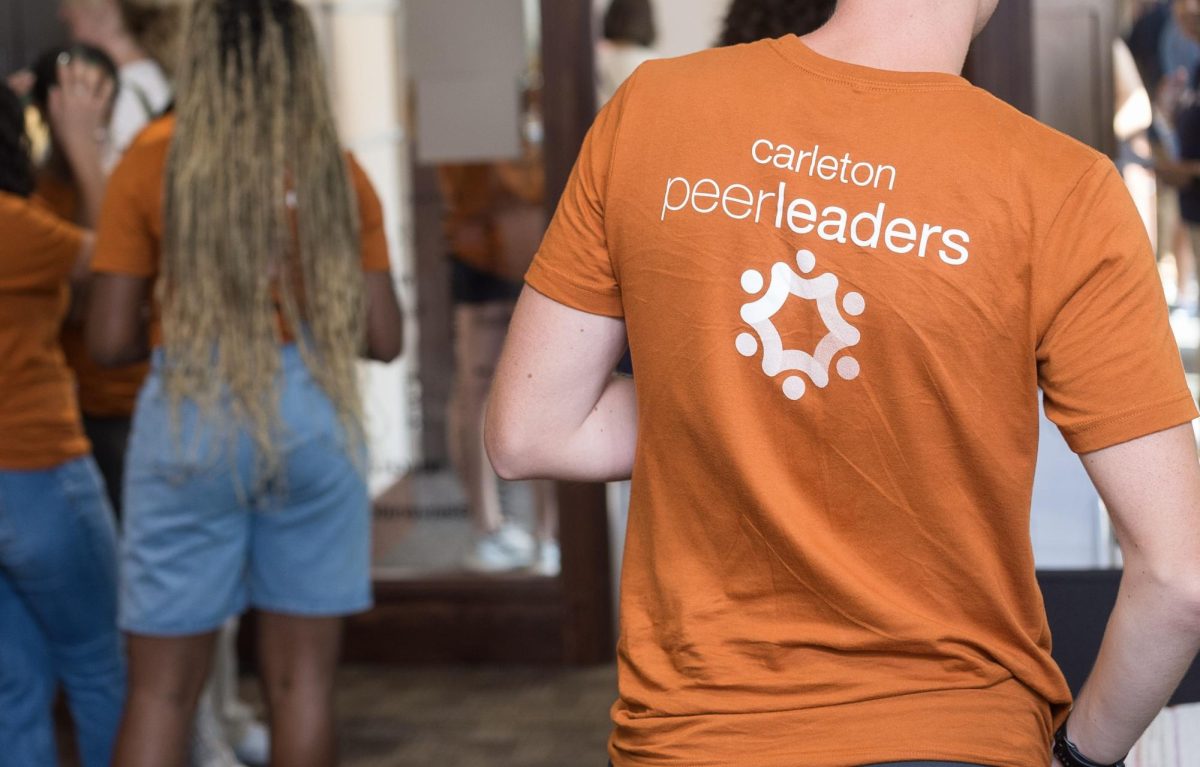Content warning: Themes of sexual assault
Why do Carleton students have sex? The apparently simple question is perhaps too seldom asked. Inspired by a recently published book, the Sexual Misconduct Prevention and Response (SMPR) team in Carleton’s Title IX Office is launching a program to explore what factors influence Carleton students’ decisions around sex.
Jennifer Hirsch and Shamus Khan, two professors at Columbia University, published their book “Sexual Citizens: A Landmark Study of Sex, Power, and Assault on Campus” in 2020. Since then, the book has garnered widespread acclaim.
The SMPR team at Carleton gave away 150 free copies of the book to the campus community and hosted two book clubs—one for students and one for faculty and staff—that met throughout Spring Term. Carleton then hosted Hirsch for a virtual talk about her book on Thursday, May 6.
Narrative-driven and based on interviews with more than 150 students at Columbia and Barnard College, “Sexual Citizens” investigates the social systems at the root of campus sexual assault.
“What the book does that I think is powerful is it names a lot of experiences college students have but haven’t really been able to name or fully identify and understand,” said Hannah Zhukovsky ’21, an SMPR Peer Educator who co-led the student book club with fellow Peer Educator Izzy Link ’21.
Students discussed ideas in the book but also shared personal experiences and observations about how the concepts applied to situations at Carleton.
“The book really made me think about the way that all college settings are set up for people with power, whether that be specifically white elites or upperclassmen who have money,” said Link.
As Zhukovsky explained, the book goes beyond a ‘No means no’ or ‘Yes means yes’ view of consent and “goes into why it is that some people feel more entitled to other people’s bodies and why it is that some people don’t feel entitled to their own bodies”—something inherently wrapped up in social identities like class, gender and race and whether students feel like they belong at an institution.
The book also reframes the idea of who commits sexual assault, focusing largely on cases where students committed harm without knowing they committed harm.
“When I came into Carleton, I saw assault as a problem of, ‘There are bad people in our society, or in our school, so we need to find who they are and get them out to make us safe.’ That can be a limiting framework because it’s important to think about how the systems we have enable bad behavior—not at all as an excuse to people who commit assault, but just as a much more helpful way of understanding it,” said Alec Jacobson ’21, another SMPR Peer Educator.
In Hirsch’s words, we need to look at sexual assault as a community problem rather than “a problem of broken individuals.”
Inspired by the book, Jacobson and Zhukovsky developed a new SMPR program focused on Hirsch and Khan’s concept of sexual projects: the reasons people choose to have sex.
“How are students who are so intentional in other parts of their lives so fuzzy about what they’re trying to get out of sex?” Hirsch commented at her talk.
There are a range of things students may be trying to achieve through sex, including gaining experience, experiencing pleasure or building a relationship with someone. “There isn’t a right and wrong sexual project, but we lift up that if your sexual project is one that doesn’t approach the other person as a person, that puts you at risk of assaulting them,” Hirsch said.
The new program will be a one-hour workshop for groups on campus (such as dorm floors and sports teams) that includes a presentation, poll questions and discussion about the reasons people choose to have sex.
“The goal of the program is to understand the concept of sexual projects and how that can be a useful framework for understanding our own decisions and reasons for wanting sex. The second part is learning how we communicate that to a partner and implement it in a way that lends itself to respectful and consensual sex,” said Zhukovsky.
While students do not have to share about their own sexual projects and experiences during the session, the facilitators hope the training will encourage students to do more personal reflection.
“At least for me growing up, I feel like there weren’t that many honest, open conversations about sex, and I think that really hinders people, not having the time and the space to do that. I hope that this program is one small step in people’s journeys of figuring out what sex means to them and if they want it to be part of their life and all that,” said Jacobson.
Critical conversations about sex can not only prevent campus sexual assault but improve all students’ sexual experiences.
“I remember hearing before reading [“Sexual Citizens”] that assault is the opposite of sex. This book challenges that and says that for a lot of people, even if the kind of sex they’re having isn’t assault, it isn’t respectful or it isn’t coming from a place of both people trying to understand their partner’s needs or desires—so I think it’s helpful for understanding not just assault but sex and relationships generally,” Jacobson said.
Ideally, the program will continue to grow next year with the help of other SMPR Peer Educators.












